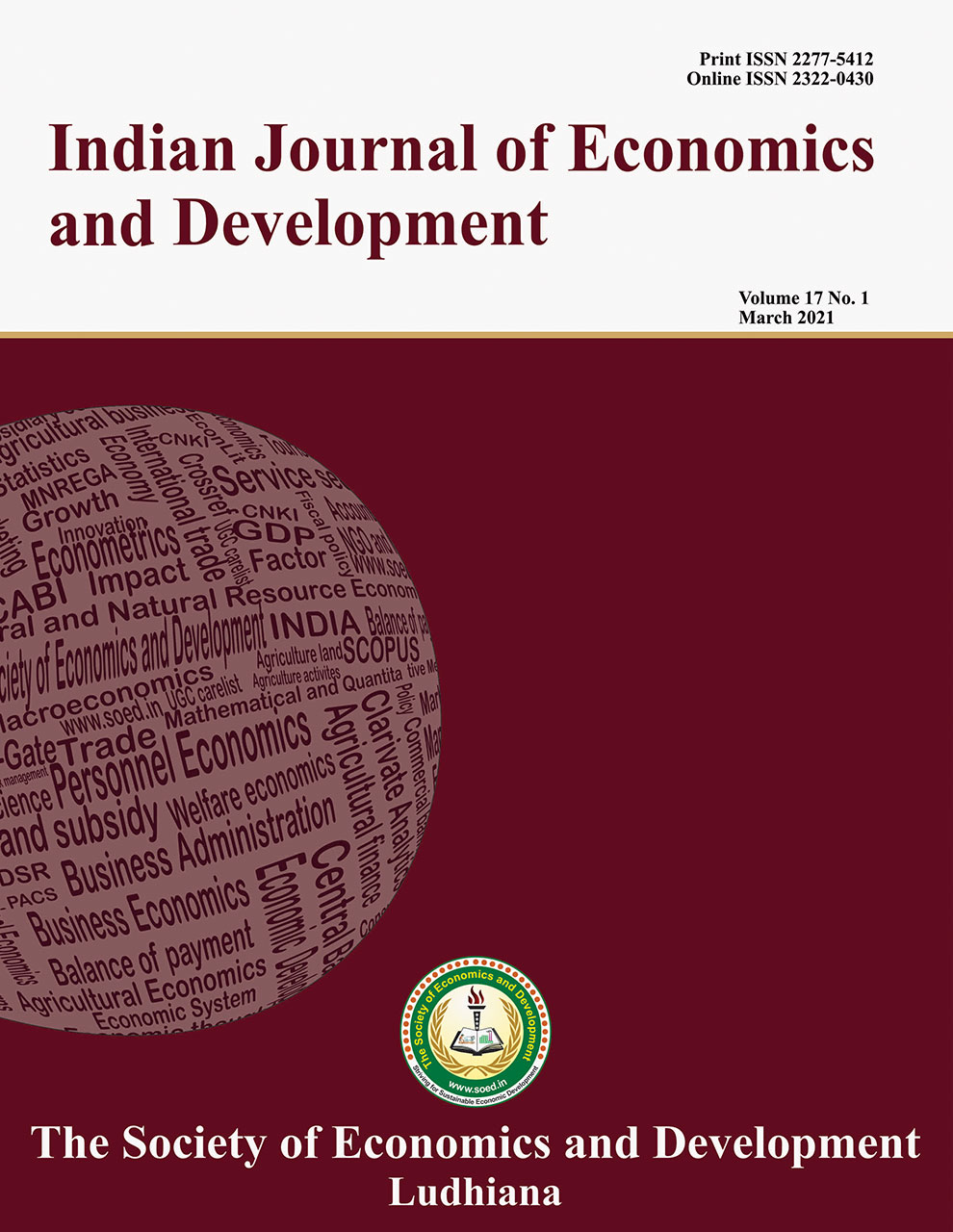Growth Trends and Economic Interlinkages of the Indian Horticulture Sector: A Comprehensive Analysis: 25101

Price: ₹ 1000
https://doi.org/10.35716/IJED-25101
Author: Mareena Alex, Sanjeev Kumar and Shaminder Kumar
Author Address: Department of Economics and Sociology, Punjab Agricultural University Ludhiana-141004 (Punjab)
Abstract
This study examined the growth trends and economic
interlinkages of horticulture in India from 2001-02 to 2022-23. Over the study period, the horticulture sector
in India exhibited remarkable expansion, with the area under cultivation
increasing from 16.59 to 28.44 million hectares, production rising from 145.79
to 355.43 million tonnes, and productivity improving from 8.79 to 12.50 tonnes
per hectare. A notable shift occurred in production dynamics, with horticulture
surpassing food grain production since 2010, attaining 355.43 million tonnes in
2022-23,
against 330.5 million tonnes of food grains.
The economic significance of horticulture was underscored by its contribution
to overall agricultural output, which grew at a CAGR of 4.14 per cent,
outpacing cereals, pulses,
and oilseeds. Furthermore, household expenditure on horticultural products, including
fruits and vegetables, showed robust growth,
with CAGRs of 4.02 and 4.09 per cent, respectively, highlighting increased consumer demand and dietary
shifts. Econometric analyses
revealed a long-run relationship between horticulture production, food grain production, and India's Gross
Value Added (GVA), indicating mutual dependencies across
these sectors. Overall,
the study underscored the pivotal role of horticulture in India's agricultural growth trajectory, emphasizing the need for continued
policy support to sustain and enhance its contribution to the Indian economy.
Keywords
Economic interlinkages, growth rates, GVA, horticulture, household expenditure.
JEL Codes
O40, Q10,
Q18.
Description
Indian Journal of Economics and Development
https://doi.org/10.35716/IJED-25101
Impact Factor: 0.2 (2025)
NAAS Score: 6.30 (2025)
Indexed in Scopus (SJR = 0.15)



